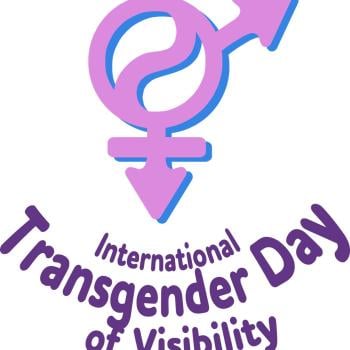I found these accusations, like the charge of bigotry, to be mostly unhelpful. First of all, the term "religious test" generally has a specific meaning. Article VI, Section 3 of the Constitution says, "No religious test shall ever be required as a qualification to any office or public trust under the United States." Religion cannot be used by the state as a qualifier or a disqualifier for office. What this means, and what I affirm, is that Mitt Romney or anyone else has the right to run. The accusation that I was calling for a "religious test" was a textbook "straw man" fallacy.
That said, let me clarify what I said about being "unfit to serve." That sentence in context is this: "I believe a candidate who either by intent or effect promotes a false and dangerous religion is unfit to serve." I struggle to understand how anyone could disagree with that statement. Where the disagreement occurs is my further assertion that Mormonism is false and dangerous and that a Romney presidency would promote Mormonism. I know that even some evangelical Christians disagree with me on this point. They say that a Romney presidency would not promote Mormonism. I respectfully disagree, and I think the stakes are too high—people's souls—to play around in the gray areas and hope we got it right.
But back to the original question: While I am not advocating a state-administered religious test, I certainly believe that every voter has the right to take a candidate's views, religious and otherwise, into account in his or her vote. So doing does not make me a "bigot" or mean that I'm imposing a "religious test." It simply means that I believe a person's religious views tell us a great deal about what a person's governing philosophy will be.
I can't resist asking again: What's so controversial about this? Tens of millions of Americans believe religion is important in the selection of a president. A day or two after Patheos posted my original article, a poll came out saying that about a third of white evangelicals were "less likely" to vote for a Mormon. After doing a little math and factoring out children, that's about 10 million voters. Another poll said that about 40 percent of all Americans would be less likely to vote for a Mormon. That same poll, by the way, said that about 33 percent would be less likely to vote for an evangelical.
Americans take religion into account. I personally don't think that's a bad thing, but it should be clear that for Romney and Huntsman, these polls are bad news.
For a Republican to win the White House, evangelicals must not just vote for the Republican candidate, they must turn out enthusiastically as volunteers and contributors. When evangelicals are lukewarm, the Democrats win. Period. That's what happened to McCain in 2008, to Dole in 1996, and to Bush in 1992. In fact, evangelicals made the difference for Carter in 1976. You quite literally have to go back 40 years to find a [Republican] candidate who won the White House without specifically reaching out to religious conservatives. If 10 million evangelicals stay home from the polls next year, who might otherwise have voted for the Republican nominee, the Republican nominee doesn't stand a chance.
Romney's strategy so far has been to talk about his values without talking about his religion. The calculation is that just as America accepted John Kennedy's Catholicism, or for that matter Barack Obama's blackness, so too is America ready to accept Mitt Romney's Mormonism. But they forget that Kennedy had to give his famous speech to the Houston Baptists about religion, and that Obama had to give his famous speech in Philadelphia about race. Romney's strategy so far has been to talk about "values" and hope that will be enough for evangelicals. It won't.
In fact, if Romney's front-runner status continues, the scrutiny will intensify. Americans eventually did accept Kennedy and Obama, but not before they stood up to the American people and proclaimed plainly, each in his own way, "This I Believe." The American people heard those words and responded, "So, too, do we believe."
Romney's problem will be that if he really believes what the Mormon Church believes, he dares not make that speech. The American people will say, "Really? Are you kidding me?" Or, if he makes "The Speech" and says he doesn't believe what the Mormon Church teaches, fellow Mormons will feel betrayed and even those who have trouble with the Mormon Church will nonetheless wonder about a man who can't stand up for his own. The bottom line: I don't see how he can square this circle.
Finally, not all of the responses to your article have been critical. More than one has said you're the last honest evangelical, courageous enough to say aloud what many believe in secret. Have you heard from many who agree with the views you expressed in your article?
I have, and I'm grateful for their support. I would also add that while I didn't ask for this controversy, I don't regret starting what I think is a significant, necessary conversation. I don't mind the criticism. I don't remember who said "my critic is the watchman of my soul," but I believe that to be true. Indeed, that idea is one of the main reasons I became a journalist.
For other noteworthy responses to these same questions, see the symposium on faith and the future of social conservatism.





